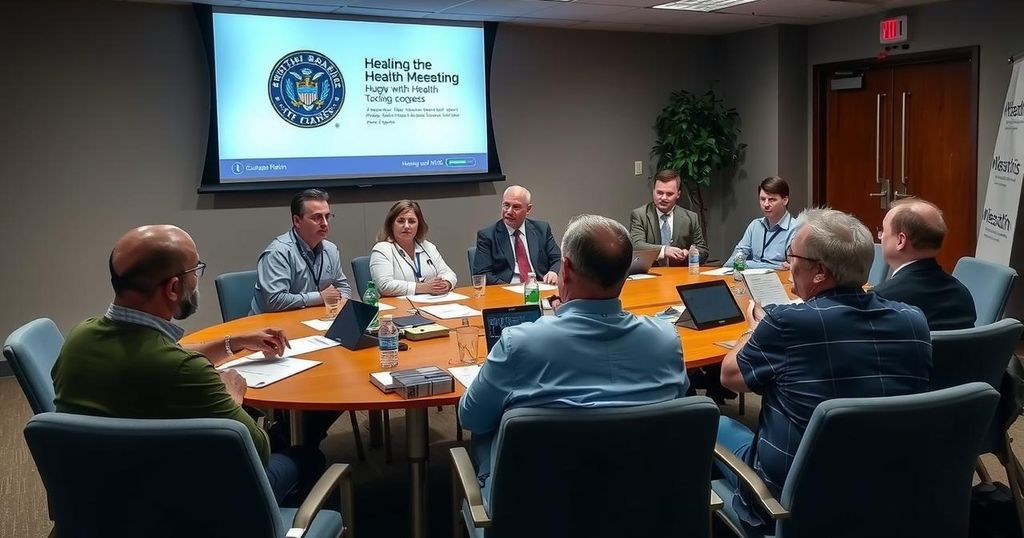COP29 Exposes Challenges in Integrating Health into Climate Policy

At COP29 in Baku, the WHO aimed to highlight health in climate discussions but faced significant limitations, resulting in the formation of a new coalition without binding commitments. The event lacked the publicity and attendance seen in previous COPs, prompting concerns about the effectiveness of non-binding agreements and funding. There are calls for enhanced integration of health priorities in climate action strategies as the world looks towards Brazil’s hosting of COP30 as a critical opportunity for progress.
The World Health Organization (WHO) convened during COP29 in Baku to address the intersection of climate change and health, but the event resulted in a lack of substantial outcomes and a continuation of dissatisfaction among stakeholders. Unlike the high-profile COP Health Day in Dubai last year, this year’s gathering was attended by only a minimal number of participants. The notable achievement was the formation of the Baku COP Presidencies Continuity Coalition for Climate and Health, which aims to keep health discussions at the forefront of future climate summits. However, the letter of intent signed during the meeting does not formalize health as a substantive agenda item in UN climate negotiations, falling short of expectations within the health community. The coalition emerges amid a global climate crisis that claims approximately ten million lives each year due to climate-related factors, with urgent calls for $5 trillion in annual funding from civil society to address climate effects. While previous COPs have seen health commitments, including the Health and Climate declaration signed by 150 nations, actual integration into national climate plans remains lacking, with only 39 countries incorporating health targets into their Nationally Determined Contributions. Amid these challenges, Brazil’s planned hosting of COP30 brings a glimmer of hope, as the new administration has signaled a commitment to prioritize health and climate issues. The juxtaposition of the recent Baku event and upcoming Brazilian leadership highlights the ongoing struggle to ensure health is prioritized in climate policy discussions, amidst competing national interests and limited funding for health initiatives.
The discussions at COP29 regarding health and climate change come in the context of longstanding advocacy for health to be recognized as a critical component in climate negotiations. Previous COPs, particularly the celebratory COP Health Day held in Dubai, marked a turning point in health recognition. Advocates seek to incorporate health considerations due to the significant impact of climate change on global health, which results in millions of preventable deaths. The formation of coalitions and initiatives like the Alliance for Transformative Action on Climate and Health underscores ongoing efforts to integrate health goals into climate action frameworks, though substantial implementation remains contentious and underfunded.
Despite the formation of the Baku COP Presidencies Continuity Coalition for Climate and Health, there remains significant skepticism regarding the efficacy of non-binding agreements, particularly in the face of limited funding and actual implementation of health initiatives. National delegations are called upon to elevate health commitments within their climate policies, especially as the world anticipates Brazil’s leadership in the upcoming COP30. The challenge remains to shift from political rhetoric to concrete action that prioritizes the health implications of climate change.
Original Source: healthpolicy-watch.news





